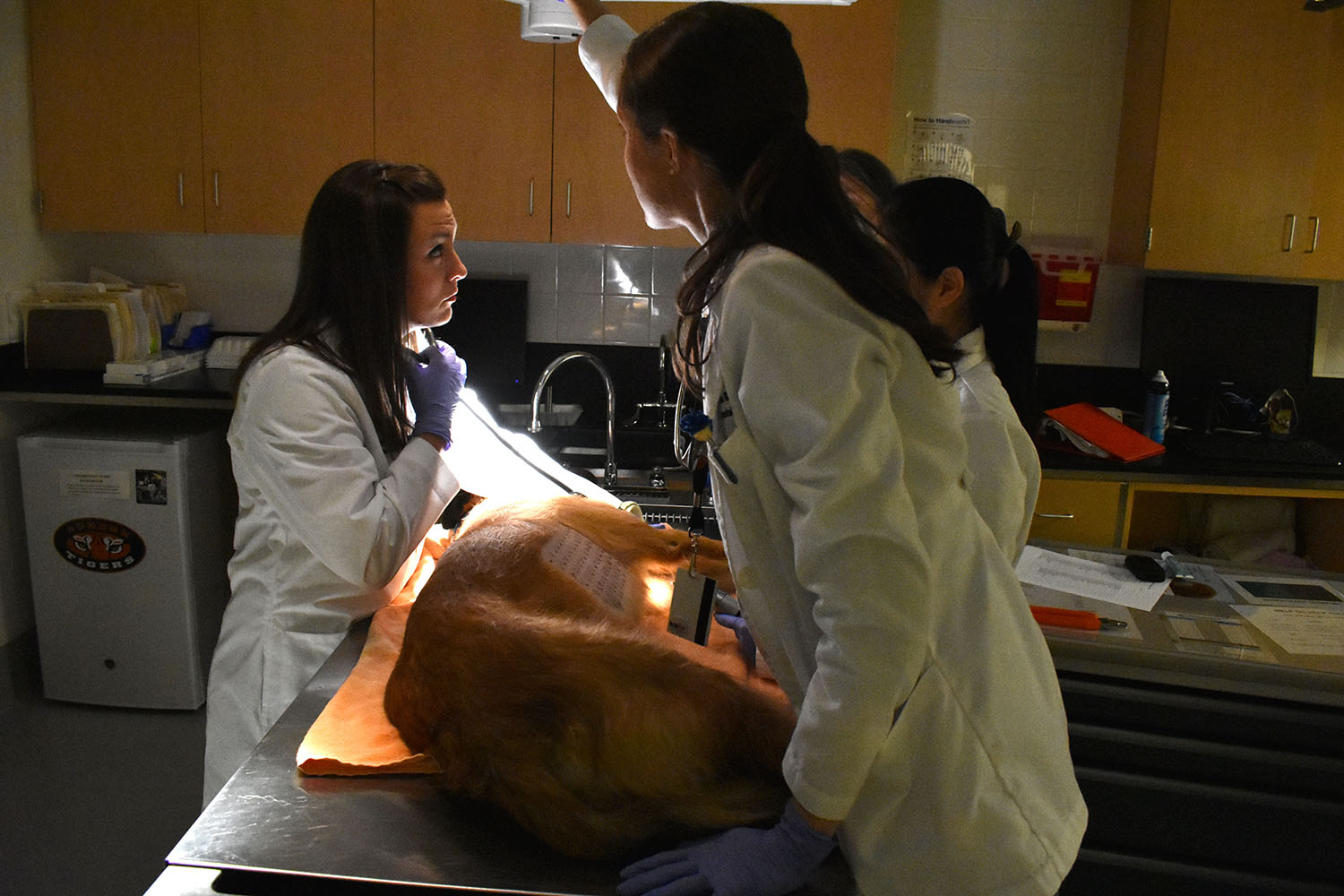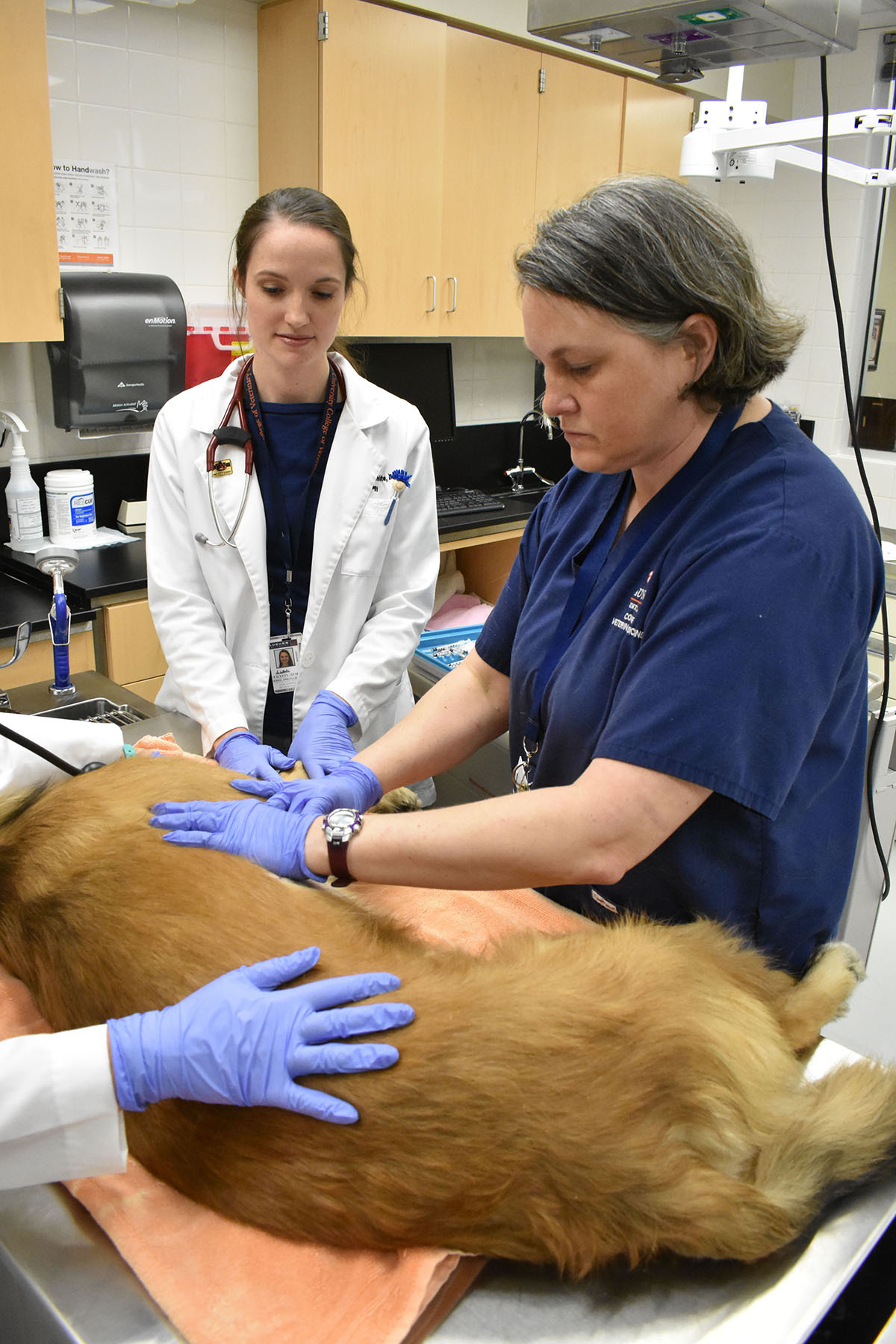Warm Weather May Mean Allergies for Pets
Spring is here and summer is coming, and along with the warm weather is the potential for harsher skin allergies for pets.

The Dermatology Service at the Wilford and Kate Bailey Small Animal Teaching Hospital at Auburn’s College of Veterinary Medicine can help.
“As the weather gets warmer and plants pollinate, we see our pets begin to scratch and show other signs of allergy suffering,” says Dr. Amelia White, an assistant professor in the Department of Clinical Sciences and one of the service’s two veterinary dermatologists. “In addition to excessive scratching, allergy suffering pets may also show such symptoms as hair loss, infection in the ears or on the skin, runny eyes and noses, and even difficulty breathing.”
Signs also may include excessive licking, chewing and biting on themselves, head shaking, rubbing and over grooming (particularly with cats), throwing up hairballs and a pet’s desire to be scratched more than usual. If an owner sees these symptoms, it is wise to see their veterinarian, Dr. White said.
Allergies are not contagious to humans or other pets, Dr. White says. Pet owners still can take precautions to reduce the recurrence of symptoms by reducing the pet’s exposure to the causes of allergies.
“Household dust and dust mites are a common cause of pet allergies,” Dr. White said. “The use of HEPA filters can help. Also, frequent changes of the pet’s bedding and allergy modification medications – used under the guidance of a veterinarian – can help reduce and control allergy suffering.”

While dogs and cats are subject to allergies, other animals may also suffer. “Here at the clinic, we also see horses and exotic pets,” Dr. White said. “We also treat animals with recurring chronic skin infections, auto-immune skin diseases, and even cancer.”
Scheduling an appointment to have one’s pet seen by a dermatologist at the College of Veterinary Medicine can be done by either having ones’ primary attending veterinarian request a referral, or, a pet owner can call and make appointments directly with the service.
Upon arrival, pets are treated depending on their condition.
“Generally, an initial exam takes two-three hours,” Dr. White said. “Typical tests might include skin cytology and skin scraping, a skin biopsy or an intradermal (skin) allergy test. Sometimes X-rays or CT scans might be necessary.” Dr. White said.
Allergies generally are not curable, according to Dr. White, but a well-developed treatment plan, along with follow-up rechecks, can significantly reduce a pet’s suffering and improve the quality of life for the pet and the owner.
Click here for a short video about the Dermatology Service.
